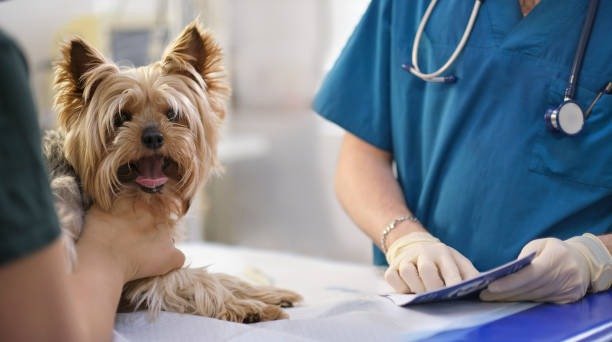We all want the best for our furry friends, and that includes keeping their mouths healthy. Pet dental emergencies can be scary and costly, but the good news is that they are often preventable. In this article, we’ll look into actionable steps you can take to keep your pet’s chompers in top-notch condition. Let’s explore.
Why Pet Dental Health Matter
First things first, understanding why pet dental health matters is crucial. Dental issues can lead to various health problems, including infections, tooth loss, and even systemic issues like heart disease. Pets rely on their teeth for eating, playing, and defending themselves, so keeping their oral health in check is paramount.
1. Regular Brushing
Start Early and Be Consistent
Just like humans, pets benefit immensely from regular brushing. Start when they are young to get them accustomed to the process. Aim to brush your pet’s teeth at least 2-3 times a week. Use a pet-specific toothbrush and toothpaste—never use human toothpaste as it can be harmful.
Make It a Positive Experience
Make brushing a positive experience by rewarding your pet afterward. Praise, treats, and affection can make a significant difference. Patience is key, especially if your pet isn’t immediately comfortable with the process.
2. Provide Dental Chews and Toys
Dental chews and toys are designed to scrape off plaque and tartar build-up while your pet enjoys a tasty treat. Opt for chews that are vet-recommended and suitable for your pet’s size and chewing habits. Always supervise your pet to ensure they don’t swallow large pieces.
3. Routine Veterinary Check-Ups
Annual Dental Exams
Schedule annual dental exams for your pet. These exams allow your vet to inspect for signs of dental disease, clean teeth professionally, and provide you with an updated dental care plan. Regular check-ups can catch problems early before they become major issues.
Professional Cleanings
Sometimes, brushing and chews aren’t enough. Professional cleanings under anesthesia can remove stubborn plaque and tartar that at-home care might miss. Discuss with your vet how often your pet may need these cleanings.
4. Watch for Warning Signs
Being vigilant about warning signs can prevent dental emergencies. Keep an eye out for:
-
Bad breath
-
Difficulty chewing or eating
-
Drooling excessively
-
Swollen, red, or bleeding gums
-
Loose or missing teeth
-
Behavioral changes like irritability or avoidance
If you notice any of these signs, contact your vet immediately.
5. Feed a Balanced Diet
What your pet eats significantly impacts their dental health. Feeding a balanced diet with the proper nutrients can help maintain strong teeth and gums. Some pet foods are specifically formulated to promote dental health, so discuss options with your vet to find the best choice for your pet.
6. Cold Laser Therapy for Dental Health
Have you heard about cold laser therapy? This innovative treatment can benefit pets with dental issues. Cold laser therapy promotes healing and reduces inflammation, making it a great noninvasive option to consider. To learn more about how this can help your pet, you should view this page and discuss it with your vet for personalized advice.
7. Encourage Safe Chewing Habits
Chewing is a natural behavior for pets, but it’s essential to provide safe items to chew. Avoid giving them hard objects like bones, stones, or hard plastic, which can break their teeth. Stick to vet-approved toys and chews to keep those pearly whites intact.
8. Consider Pet Boarding
Sometimes, our busy lives mean we can only be there to take care of our pets’ dental needs. Services like pet boarding in Mamaroneck, NY, can offer a solution. Quality pet boarding facilities ensure that pets are looked after comprehensively, including their dental hygiene, providing you peace of mind when you’re away.
9. Be Mindful of Hydration
Did you know that proper hydration plays a role in your pet’s dental health? Water helps rinse away food particles and bacteria from the mouth. Ensure your pet has constant access to clean, fresh water, which can aid in maintaining their oral hygiene.
When to Consult a Dog Dentist
If your pet’s dental issues are recurrent or severe, it might be time to consult a specialist. A dog dentist in Mamaroneck, NY, for example, can provide specialized care and advice. They have the expertise to handle complex dental problems, ensuring your pet gets the best treatment possible.
Special Considerations for Older Pets
As pets age, their dental needs may change. Older pets are more prone to dental issues, so that they may require more frequent dental exams and cleanings. Be extra cautious about their diet and oral hygiene, and consult your vet for a tailored dental care plan.
Wrapping Up
There you have it. By following these steps, you can significantly reduce the risk of pet dental emergencies. Remember, regular maintenance and vigilance go a long way in keeping your pet’s smile bright and healthy. Not only will these practices ensure your pet’s comfort and health, but they will also save you from potential stress and expenses down the line. Let’s keep those tails wagging and those teeth sparkling.

